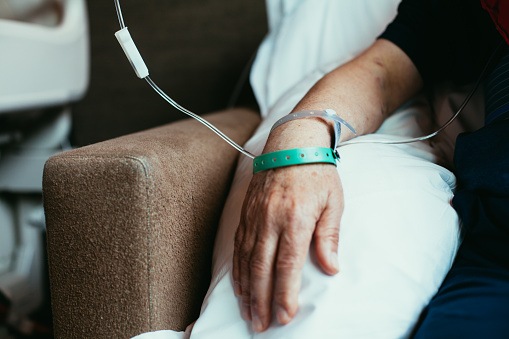
A study published in Nature Medicine identified molecular and cellular characteristics of anti-CD19 chimeric antigen receptor (CAR) T-cell infusion products that are associated with how patients with large B-cell lymphoma (LBCL) respond to treatment and develop adverse events (AEs). Based on the outcomes, within the first week of CAR T-cell therapy, clinicians may be able to identify a subset of patients who could experience worse outcomes or AEs based on early changes in circulating tumor DNA, according to the researchers.
Researchers performed single-cell RNA sequencing with capture-based cell identification on CAR T-cells to identify transcriptomic features associated with efficacy and toxicity in 24 patients with LBCL.
Patients who achieved a complete response by positron emission tomography/computed tomography at three months of follow-up had threefold higher frequencies of CD8 T-cells expressing memory signatures compared with patients with partial response or progressive disease. Molecular response measured by cell-free DNA sequencing at day seven after CAR T-cell infusion was significantly associated with clinical response (P=0.008), and a signature of CD8 T-cell exhaustion was associated with a poor molecular response.
A rare cell population with monocyte-like transcriptional features was associated (P=0.0002) with high-grade immune effector cell-associated neurotoxicity syndrome, which can delay patient recovery and increase the need for hospitalization, according to the researchers.
“Our results suggest that heterogeneity in the cellular and molecular features of CAR T-cell infusion products contributes to variation in efficacy and toxicity in LBCL and that day seven molecular response might serve as an early predictor of CAR T-cell efficacy,” the researchers concluded.







 © 2025 Mashup Media, LLC, a Formedics Property. All Rights Reserved.
© 2025 Mashup Media, LLC, a Formedics Property. All Rights Reserved.